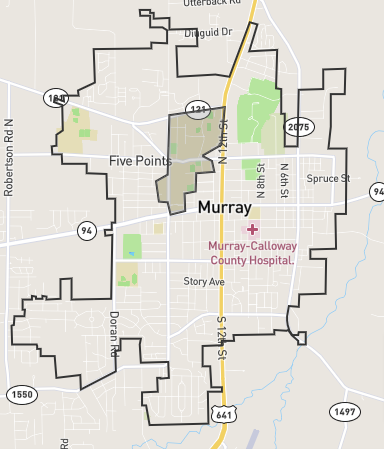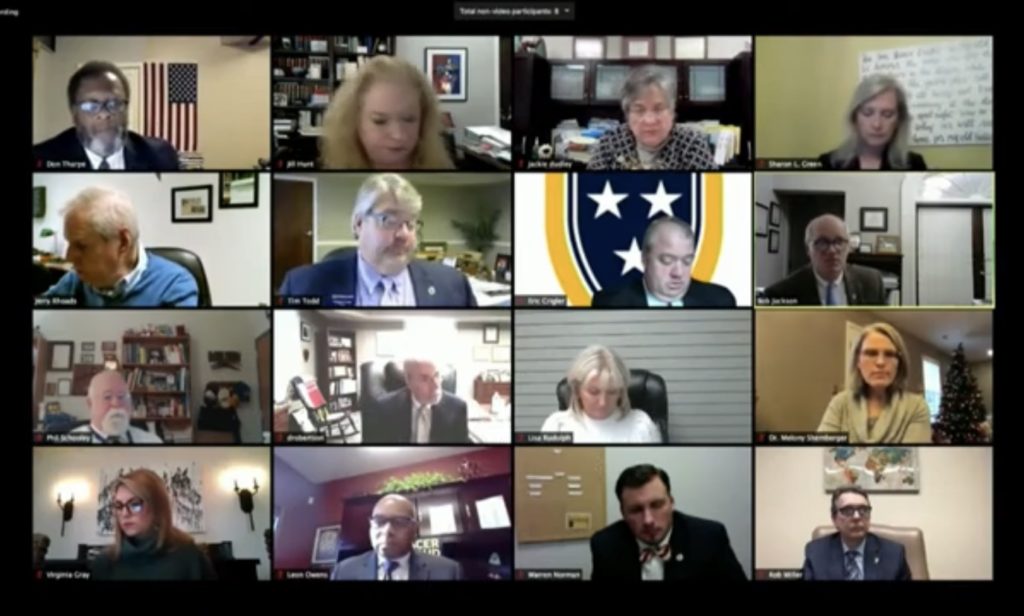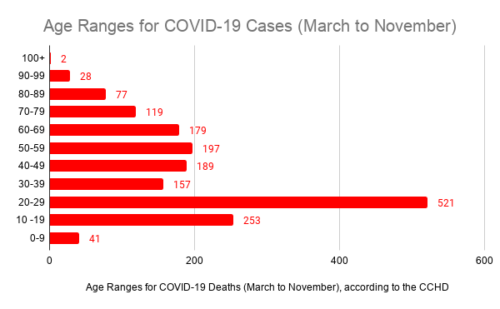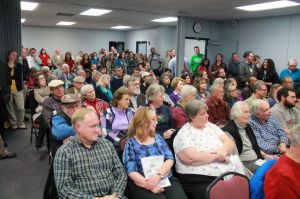
Adhered to a door to the City County Building is a small sticker, one that declares Murray as the Friendliest Small Town in America. This exact phrasing was repeated in the Murray City Council chambers Monday night as community members gathered to discuss LGBT revisions to the Human Rights Ordinance.
Approximately three weeks after being postponed, the city council held a town hall meeting Monday night for community members to discuss the revisions, which proved to be a controversial topic during the original Nov. 13 meeting date.
With rows of chairs and walkways filled with people, a total of 33 people spoke to the council, with 22 speakers in favor of the revisions and 11 speakers in opposition. However, there was not an official count of those in favor or in opposition from all of the attendees.
The town hall was moderated by Robert Valentine, senior lecturer in advertising, who asked for speakers to respect certain protocols. Protocols included keeping the meeting around an hour and a half long, giving speakers approximately two minutes to speak and for those who wished to speak were to be residents of the City of Murray.
IN FAVOR
Tracie Gilbert, visiting professor in the College of Humanities and Fine Arts, said she was employed at Murray State in August to advance diversity on campus and in the community, and said she was in awe that the discussion about protecting LGBT rights was still ongoing.
“These discriminations actually exist, not just in large cities,” Gilbert said. “People will smile and be nice to your face, but then they’ll do actions behind your back that represent their private beliefs about your personal life.”
She said voting in favor of the ordinance sets a precedence that says all lives matter, regardless of how any one group or entity may feel about those lives on a personal level.
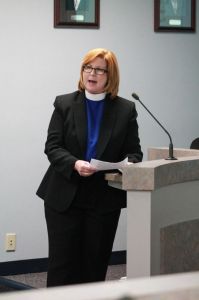
She said she worries that if she were to establish residence after her year-long appointment, her children could be raised in a city where not all basic rights are protected and said she does not see the revisions as anything but necessary.
“As such, I encourage and expect a vote in the affirmative of passing of the ordinance in this city, which is supposed to be the Friendliest Small Town in America,” Gilbert said.
Renee Meyer, pastor of First Presbyterian Church, implored the council to recognize that the debate was not of the morality of same-sex relationships, but of discrimination.
Meyer said that as Christians, she and those who identify as Christians should act in a way and seek to create a better world.
“Any act the denies the full humanity and dignity of another human being is contrary to justice and as such is contrary to the gospel of Jesus Christ,” Meyer said.
Richard Reed, business owner, said the passing of the ordinance would not change the way he would run his business and said it was not his job to judge anyone.
“If you come to work with me, you do a good job and you help me make money, then you’ve got a job,” Reed said. “If you’re stealing from me, then you don’t … this ordinance will not change in any part the way I do business.”
He said he is in support of the ordinance and wants to see protection for all citizens.
IN OPPOSITION
Berry Morris, a small business manager in Murray, said he approaches the ordinance from a business standpoint.
“The way this law is written, if I don’t hire somebody that makes that known, then all of a sudden I become liable for a complaint that could be filed against me or my company,” Morris said. “That’s not a pressure I appreciate. That’s not a pressure I believe other small town business owners would appreciate.”
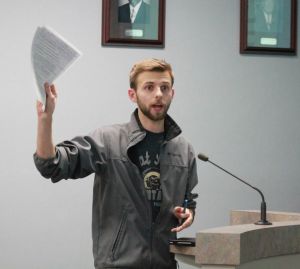
Morris said he does not want to bring sexuality into the workplace, and that his job is to make money and that he doesn’t want the distraction and does not think other businesses would want it, either.
“My issue is, as a business manager in Murray, I don’t want to have to deal with this,” he said. “This is a distraction. I don’t want to have to distract my coworkers and I don’t want to have to distract my clientele by having someone in the office that chooses to make their sexuality their number one identity.”
Ryan Brooks, pastor and Murray resident, said he opposed the legislature because it was broad.
“It could be so easily and quickly amended for special protections for a class of people in the future,” Brooks said. “I am in favor of human rights for a broad range of people, but this ordinance, the way it is written now, could very easily be amended in the future.”
He said he is in favor of equal protection, but reiterated that an amendment could be passed for special protections without a room full of people and only with a few council members.
Additionally, Brooks said that his religion was not a part of the situation for him, and believes the law needs to be rewritten to prevent special protection.
The town hall meeting and speaker input will be discussed at the Human Rights Commission meeting Jan. 12, which is open to the public. The commission will make a decision on how to proceed at that point in time.
Story by Mary Bradley, Editor-in-Chief




























































































